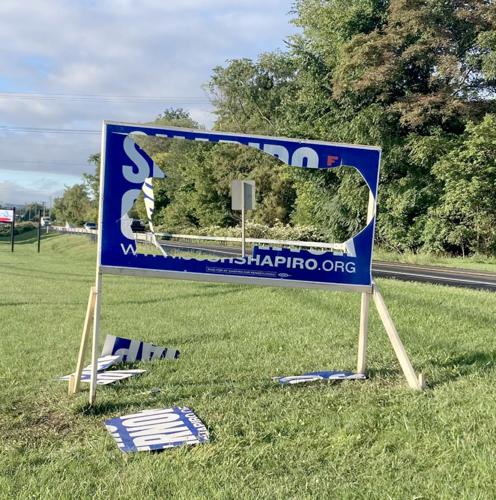
The 2024 general election is less than a month away. By now, you’ve probably seen at least a few yard signs endorsing someone’s preferred candidate, and even more will likely pop up as the election approaches. Political polarization is peaking online and in our communities.
But what if someone sees a yard sign they disagree with and takes it down? Is that protected political expression or destruction of someone else’s property?
While some might view taking down or defacing yard signs as an act of civil discourse or political activism, the law is clear on the issue: Theft or vandalism of political signs is a crime in all 50 states. Trespassing on private property is also a punishable offense in every state.
WASHINGTON’S LAW REGARDING THE THEFT OR DEFACING OF POLITICAL YARD SIGNS
State law addresses the exact topic in RCW 29A.84.040. It is a misdemeanor to “[remove] or [defaces] lawfully placed political advertising” without permission. In Washington, misdemeanors can be punished by up to 90 days in prison or a fine of up to $1,000, and in some cases can carry both a sentence and a fine. The statute includes yard signs – the law mentions them specifically – and each yard sign taken down is considered a separate violation.
Additionally, violators face Criminal Trespass and/or Malicious Mischief charges, which are also misdemeanors. Criminal Trespass refers to intentionally entering someone else’s private property without their permission. Malicious Mischief refers to Knowingly and maliciously causing physical damage to the property of another.
POLITICAL YARD SIGNS ARE FIRST AMENDMENT FREE SPEECH
The right of a property owner to post signs representing their political beliefs is one that is rooted in the First Amendment, which protects every citizen’s right to freedom of expression. Generally, yard signs have proven to be an easy and inexpensive way to participate in public debate, and the courts have recognized the protected form of expression as such.
It is believed that the first political yard sign in American politics dates back to John Quincy Adams’ presidential run in 1824. The current wire-framed version of political lawn signs originated in the 1960s. However, the concept of political signage can be traced all the way back to Ancient Rome.
Increased theft and vandalism of political signs has prompted some property owners to attempt to catch trespassers by installing cameras such as security cameras, smart video doorbells, or trail cams. The footage is being used to shame people online and also helps law enforcement track down offenders.
Stealing or defacing political lawn signs is a terribly embarassing criminal conviction. Please contact my office if you, a friend or family member are charged. Hiring an effective and competent defense attorney is the first and best step toward justice.










